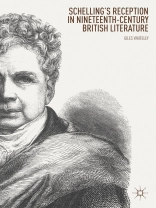This book examines the various ways in which the German philosopher Friedrich Schelling was read and responded to by British readers and writers during the nineteenth century. Challenging the idea that Schelling’s reception was limited to the Romantics, this book shows the ways in which his thought continued to be engaged with across the whole period. It follows Schelling’s reception both chronologically and conceptually as it developed in a number of different disciplines in British aesthetics, literature, philosophy, science and theology. What emerges is a vibrant new history of the period, showing the important role played by reading and responding to Schelling, either directly or more diffusely, and taking in a vast array of major thinkers during the period. This book, which will be of interest not only to historians of philosophy and the history of ideas, but to all those dealing with Anglo-German reception during the nineteenth century, reveals Schelling to be a kind of uncanny presence underwriting British thought.
表中的内容
Chapter 1: Uncanny Echoes.- Chapter 2: Schelling’s Reception in British Romanticism, 1794-1819.- Chapter 3: Schelling’s Reception in Scotland, 1817-1833.- Chapter 4: The Plagiarism Controversy.- Chapter 5: Schelling in Berlin.- Chapter 6: The Victorian Literary Reception of Schelling.- Chapter 7: Schelling and British Theology.- Chapter 8: The Legacies of Naturphilosophie and British Science.- Chapter 9: Schelling and the British Universities.- Chapter 10: Schelling in British Mythological and Aesthetic Literature.- Chapter 11: Towards a Modern Reading of Schelling.- Index
关于作者
Giles Whiteley is Reader in English Literature at Stockholm University, Sweden. He is the author of
Aestheticism and the Philosophy of Death: Walter Pater and Post-Hegelianism (2010) and, most recently,
Oscar Wilde and the Simulacrum: The Truth of Masks (2015).












